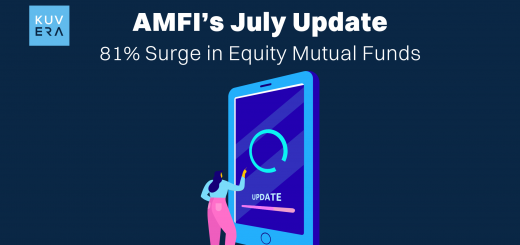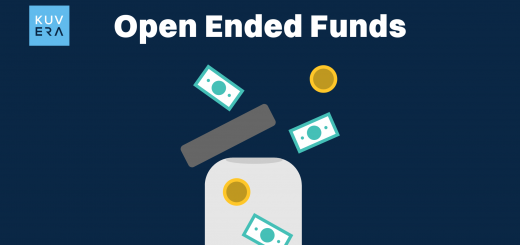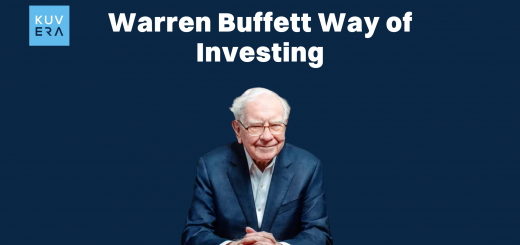Passive funds are often associated with long-term investing. So, are passive funds good for long-term investing? According to Keynesian ideology, in the long term, we are all dead. Applying Keynesian thought we can also say that in the long-term we all retire.
Data and forecasting based on retirement calculators convey the idea that the investment span for retirement needs to be increased. Passive funds with their long-term investment ideology can help you fulfill your long-term dream of financial security on retirement. However, for this, you need to start early with your passive fund investment plan.
Want to calculate optimum investments for your various financial goals? Click here.
Why are passive funds the way to retirement planning?
Famed economist John Maynard Keynes championed passive fund investing as a cornerstone of wealth creation. His own financial achievements serve as a testament to the effectiveness of this strategy. Unlike actively managed funds that attempt to outperform the market through frequent buying and selling, passive investing relies on low-cost index funds. These funds simply track a specific market segment, like a broad market index such as the S&P BSE 500 or Nifty 50. This approach aligns perfectly with retirement planning, where the goal is long-term, steady growth rather than risky bets on short-term market fluctuations.
Let’s delve into the specific merits of index funds, a type of passive investment, for building a secure retirement nest. Here’re the inner workings of passive funds and how they can contribute to your financial stability in the years to come.
But before we get into the specifics, let’s take a moment to understand the core benefits of passive funds in general.
What are passive mutual funds, and why invest in them?
The world of investing can be intimidating, especially for beginners. Because of this, many investors might get bothered with questions like these:
- Where should I invest?
- What are good investment products?
- Are these investments good for my goals?
- How much money is enough money for retirement?
While investors might have different short-term goals from time-to-time, the most inevitable financial goal is retirement.
Find out the long-term impact of SIP investing. Click here.
Passive funds can be a powerful tool to address the fear of running out of money in retirement. Unlike actively managed funds, in which a manager attempts to pick winning stocks and outperform the market, passive funds take a more relaxed approach.
Passive funds track indexes like the Nifty 50 and SENSEX, which represents a basket of leading companies. This gives you a small ownership stake in each constituent company, reducing the risk of a single company’s performance impacting your investment – diversification benefit.
One key advantage of passive fund investments is that they avoid the potential pitfalls of human bias. Many investors dream of picking the next big winner, but consistently beating the market is incredibly difficult, even for professionals. Passive investing removes this element of risk by simply mirroring the broader market’s performance.
Another benefit of passive investment fund is their simplicity. Passive funds can be easier to understand and manage than actively managed mutual funds. The fund manager simply replicates the holdings of the underlying index and only needs to rebalance the portfolio when the index’s composition changes. This translates to lower fees for investors as well.
Want to learn more about passive funds in India? Click here
Retirement planning with passive funds
Passive mutual funds can be a powerful tool for retirement planning, especially if you start investing young. The longer your investment horizon, the more time your money has to grow through compounding. When you are young, you may be more comfortable taking risks. So, aggressive equity mutual funds could be an option for potentially higher returns. This can be done via passive investment funds through equity index funds. In the case of conservative investments, passive debt funds are available, too.
Another masterstroke can be combining two of your financial goals with passive fund investment. For example, you can combine your tax saving goal with your retirement planning goal by using passive ELSS funds. This strategy could make your efforts somewhat easier and automated.
Start investing in Index Funds.
Example of using passive funds for retirement
Let’s consider a hypothetical example.
Systematic Investment Planning (SIP) is a smart way for young investors to get started. With SIP, you can invest a fixed amount of money, say ₹10,000, every month towards your retirement. This consistent investment helps you build a disciplined savings habit, regardless of market fluctuations.
Imagine Josh, a 30-year-old who starts investing ₹10,000 per month through SIP. He projects a 12% return rate. If he maintains this discipline for the next 30 years until retirement at 60, he could potentially accumulate a significant corpus of around ₹3.52 crores. This example illustrates the power of SIP in building a substantial retirement fund while managing moderate risk through consistent investing.
However, your income won’t stay stagnant. You might get a raise or switch to a higher-paying job. As your income grows, so should your SIP contribution. This approach, called SIP top-up or step-up SIP, can significantly increase your retirement corpus. Let us say John gets a raise and decides to increase his SIP contribution by 10% every year. This small adjustment can make a big difference in the long run. At the end of 60 years, your corpus would stand at ₹8.34 crore.
Passive Funds vs Actively Managed Funds
Passive fund investments like Index funds can be a great foundation for many investment portfolios, including those focused on retirement savings. They are a low-cost way to gain diversified exposure to a broad market segment, like the Nifty 50 or the entire stock market.
While actively managed funds can offer the allure of potentially higher returns through human stock picking, this strategy doesn’t always outperform the market and often comes with higher fees.
Investors can choose to build a portfolio around low-cost index funds and regularly check in on it to make sure their asset allocation remains aligned with their retirement goals. This hands-off approach, focused on low fees and diversification, can help you reach your retirement goals without the need for constant market monitoring or chasing after the next hot investment trend.
Here are some of the index funds and their 5-year performance:
Top Index Funds 5-year returns
UTI Nifty Next 50 Index Fund - Direct Plan - Growth 23.13%
DSP Nifty Next 50 Index Fund - Direct - Growth 22.89%
ICICI Prudential Nifty Next 50 Index Fund - Direct Plan - Growth 22.87%
LIC MF Nifty Next 50 Index Fund - Direct Plan - Growth 22.85%
Sundaram Nifty 100 Equal Weight Fund - Direct Plan - Growth 21.15%
DSP Nifty 50 Equal Weight Index Fund - Direct Plan - Growth 21.04%
Source: MoneyControl; Data as of July 13.
Summing Up
While many index funds track similar benchmarks and deliver similar returns, your choice can come down to factors like expense ratios, the fund manager’s track record, the fund house’s history, and your own risk tolerance.
Passive fund investments through Index funds can absolutely be the sole building block of a retirement portfolio. They can offer a simple, low-cost way to achieve diversification and capture market returns. This is especially beneficial for beginners and sophisticated investors, alike.
However, if you are interested in exploring actively managed funds, it can be still better to maintain some exposure to passive index funds for a better retirement corpus. This can help balance out the potentially higher risk and potentially higher rewards of actively managed funds.
Interested in how we think about the markets?
Read more: Zen And The Art Of Investing
Watch here: How To Save Income Tax On Your Mutual Fund Investments
Start investing through a platform that brings goal planning and investing to your fingertips. Visit kuvera.in to discover Direct Plans of Mutual Funds and Fixed Deposits and start investing today.
AREVUK Advisory Services Pvt Ltd | SEBI Registration No. INA200005166
DISCLAIMER: Mutual Fund investments are subject to market risks. Read all scheme related documents carefully. Registration granted by SEBI, membership of BASL (in case of IAs) and certification from NISM in no way guarantee performance of the intermediary or provide any assurance of returns to investors. Investments in securities market are subject to market risks. Read all the related documents carefully before investing. The securities quoted are for illustration only and are not recommendatory.












